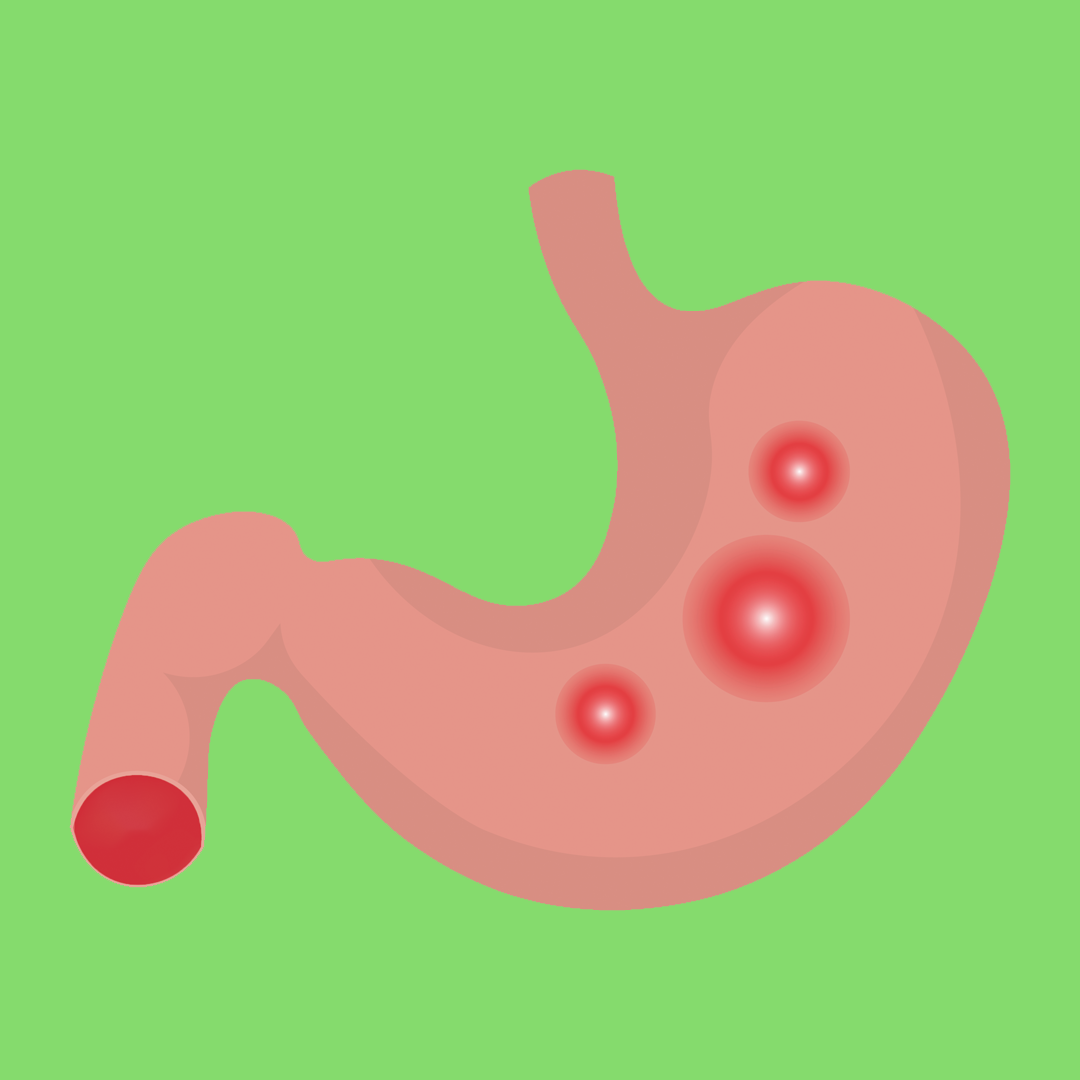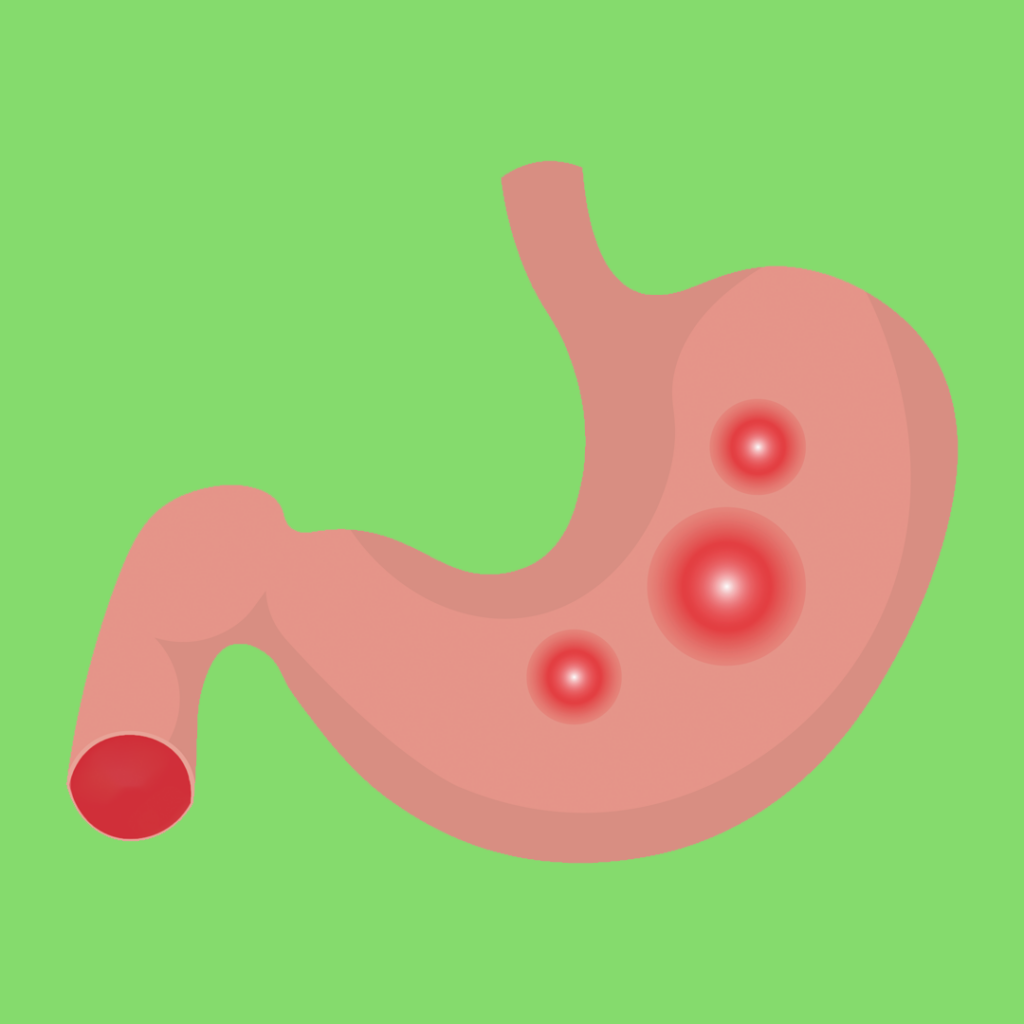Using zinc for faster recovery from stomach ulcers

Questions answered in this article:
If you or someone you know has experienced stomach ulcers, you may know that the symptoms that come with it can be uncomfortable and painful. Symptoms like a burning sensation in your abdomen, weight loss, nausea or vomiting, loss of appetite, and anemia (low red blood cells) are all telltale signs of stomach ulcers.
But what you may not know is that zinc can help speed up recovery from stomach ulcers. Read on to learn more about stomach ulcers and how zinc can help.
How do stomach ulcers develop?
The mucosal lining in the intestines is the innermost layer of your gut within the intestinal wall, made up of a network of cells. It’s essentially a slippery lining that shields the rest of the body from the contents within the intestinal wall, like undigested food particles, toxins, and trillions of bacteria.
There’s a similar layer in your stomach, to protect your stomach tissue from the digestive juices meant to break down your food. The digestive juice within your stomach is a combination of hydrochloric acid (HCL) and enzymes responsible for nutrient digestion known as pepsin and lipase. But when that mucus layer wears out, as a result of changes to the gut microbiota, the digestive juices begin eating away at your stomach tissue. This usually occurs due to inflammation from a bacteria called Heliobacter pylori (the bacteria behind ulcers), causing your stomach to begin digesting itself.
Over time, this forms stomach ulcers – the resulting open sores in the lining of your stomach, which require professional medical treatment. There are two types of stomach ulcers, gastric and peptic. Peptic ulcers are found on the lining of your stomach or the first part of your small intestine (duodenum). These ulcers are also called duodenal ulcers. On the other hand, gastric ulcers are those found in your stomach.
How can zinc help?
If you’re on the road to recovery from stomach ulcers, zinc’s repairing abilities may just speed up your healing and make you feel better. Did you know that each of our cells has zinc in them? It’s true – zinc can be found in the cell nucleus, nucleolus, and chromosomes, making it an essential part of DNA synthesis. Zinc is key in DNA creation and replication, and is also known to stabilize the structure of DNA, RNA and ribosomes. As a result, zinc is needed to make new cells as your stomach tissue repairs itself.
In one double-blind study, people receiving daily zinc sulfate supplements showed an ulcer healing rate three times faster than those who took a placebo. The size of the ulcers in the zinc group was also reduced by three times compared to the placebo group.
Zinc also has antibacterial properties which work against Heliobacter pylori. H. pylori excretes a compound called urease to protect itself against the acidic environment in your stomach. Zinc ions react with urease and deactivate it, making it far harder for H. pylori to thrive on your stomach lining.
Stomach ulcers & zinc deficiency
It’s important to note that not having sufficient levels of zinc in the body can impact how fast you heal from gastric ulcers. One study researched the effects of zinc deficiency on the formation of stomach ulcers. While zinc did not seem to affect the formation of ulcers, having a zinc deficiency showed a decrease in cell replication, which ultimately delayed ulcer healing.
Zinc is a mineral crucial to our overall well-being, especially because of its role in a wide range of systems throughout the body. Keeping an eye on your zinc intake can protect your stomach tissue and help you towards a speedy recovery from ulcers!
